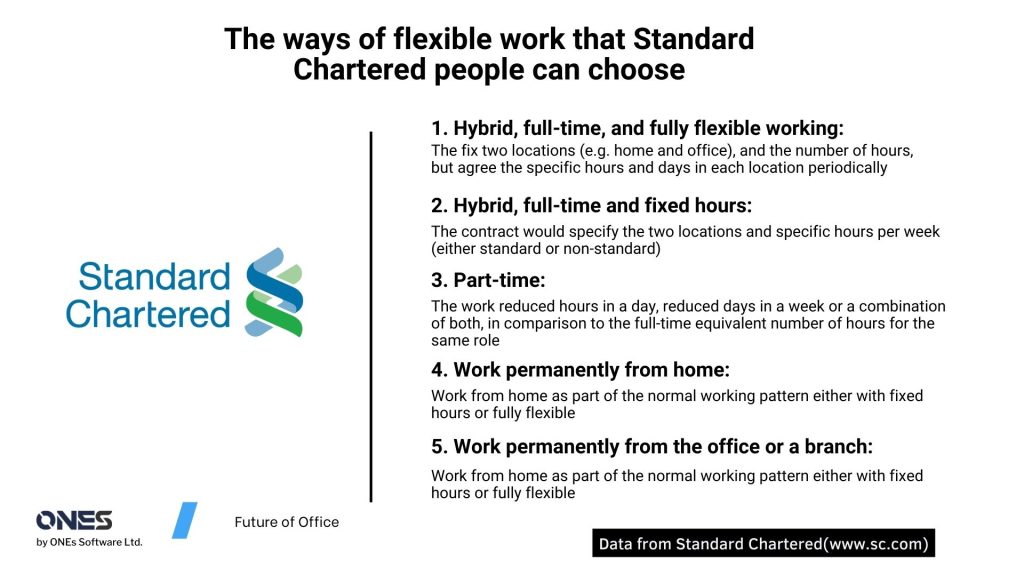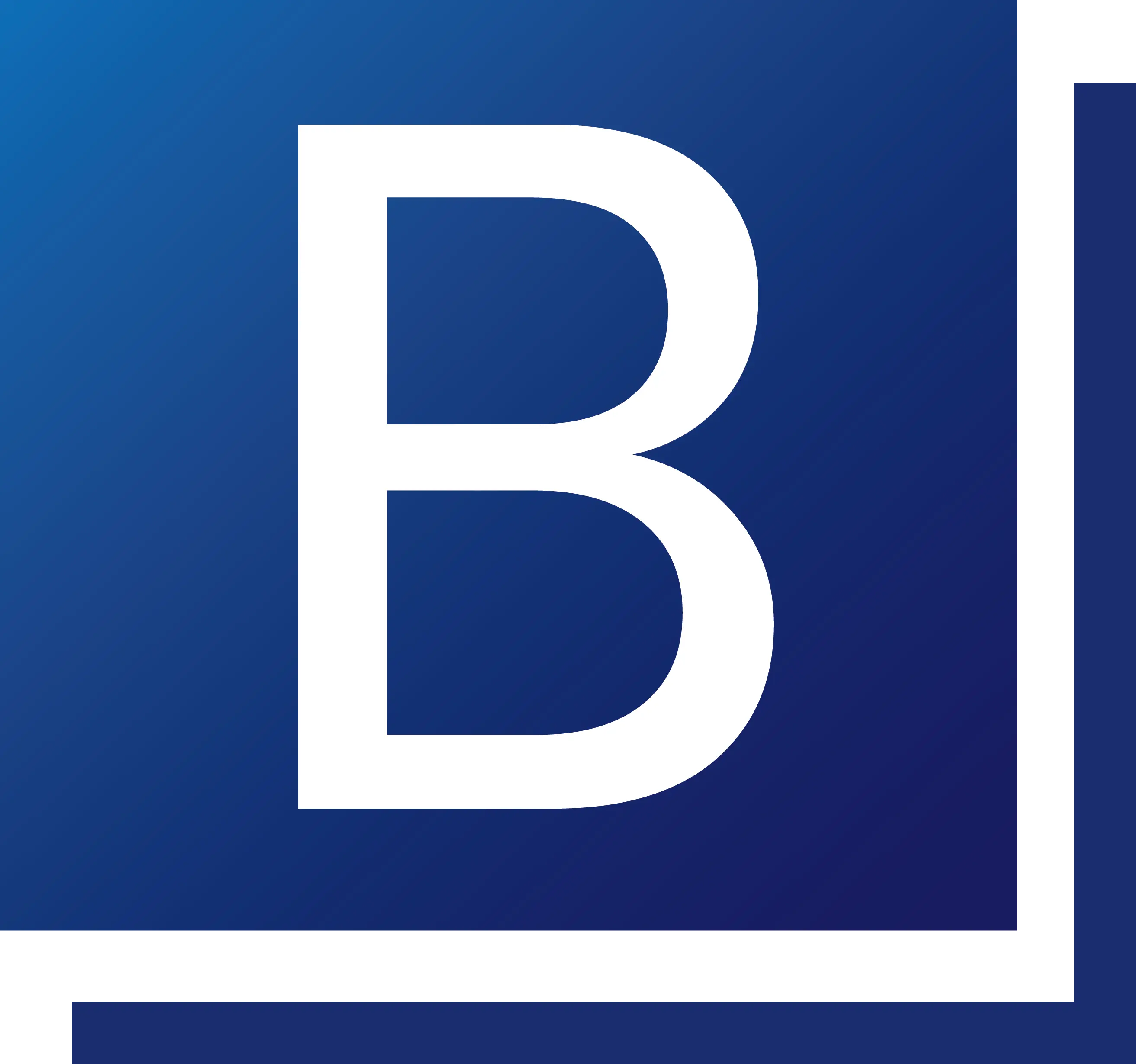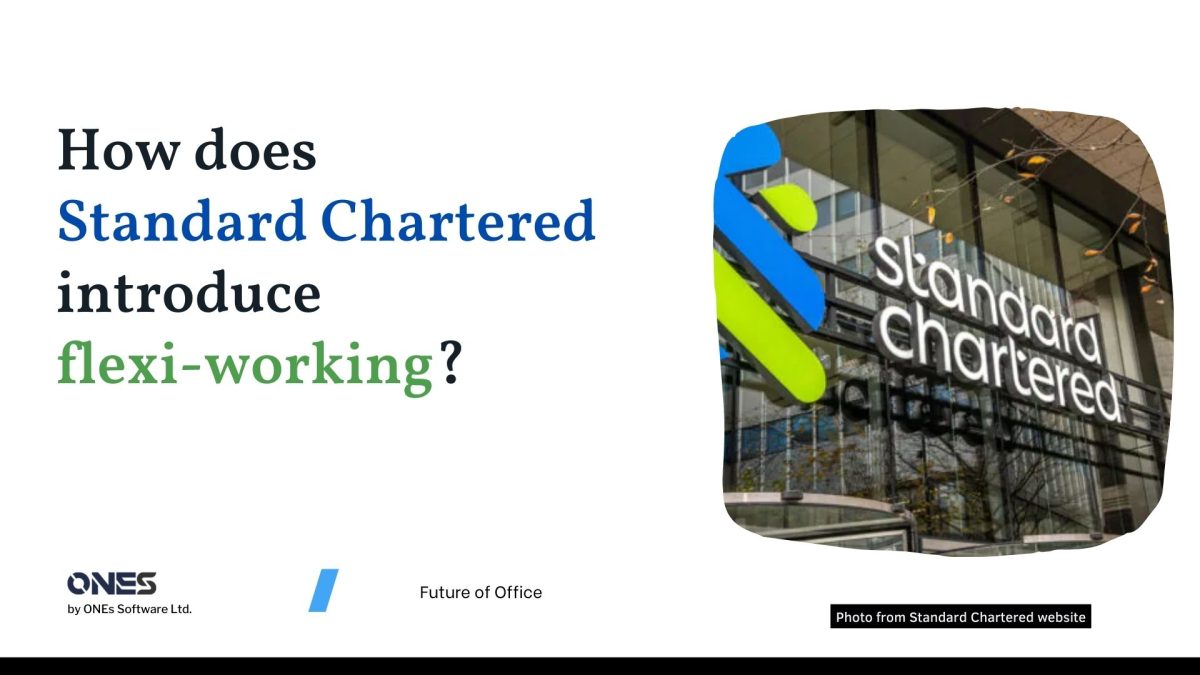- Standard Chartered provides various types of flexible working modes for people-oriented policies implementation.
- Standard Chartered set several work guidelines that allow employees to work flexibly.
- Hybrid work can provides high flexibility to Singapore offices.
According to the latest Workmonitor survey, based on 1,000 Singapore respondents, more than 40% of people said they would not accept a job offer if they couldn’t work from home or didn’t have flexible work hours.
The Singapore Newspaper – TODAY has interviewed 10 firms, 6 firms said that they would retain their present hybrid work arrangements after the Covid-19 pandemic, financial institutions such as Citi, HSBC and UBS have flexible work plans now.
For example, Standard Chartered has already implemented flexible work and believed that flexible work can help them retain its talents. The reason of implementing flexible work is that base on the understanding of Singaporeans’ preferences, spending time with family is more important than work.
Table of Contents
How Standard Chartered implements flexible work
Standard Chartered provides several types of flexible working modes, the modes are taking care of different employees’ needs, and they are people-oriented policies.
The ways of flexible work provided by Standard Chartered are as follows:

- Hybrid, full-time, and fully flexible working
- Hybrid, full-time, and fixed hours
- Part-time
- Work permanently from home
- Work permanently from the office or a branch
These approaches are used to support the future sustainability of Standard Chartered and help them to motivate and retain diverse talent, build resilience, productivity and support personal well-being.
Standard Chartered also has issued some guidelines for these work models, with the following key points:
1. Provide flexible work to allow employees to choose their work style, it helps them reduce work pressure and helps them to build confidence and a sense of success;
2. In terms of training, it should have flexibility.
For example, virtual meetings and remote work can help employees adapt to the new environment. The managers need to regularly follow up with new employees to understand which work style is more suitable for them and set somes plans for them to stay in the company in the future.3. In development planning, the management needs to provide appropriate flexible working guidelines. The guidelines should maintain some targets for the employees.
Also, the targets that should consider individual development needs and aspirations — create growth goals aligned to these. These can make employees understand that the focus should be on the results of their work rather than the length of time they work.4. Management needs to regularly follow up their employees, establish appropriate work patterns to different employees, and take care of the employees with individual needs.
For example, there are some departments where employees need to work at the office, and the managers need to provide work at the office with flexible work arrangements for these employees.
As we can see, the Standard Chartered work guidelines not only require managers to make suitable flexible work arrangements for different employees, but also require the managers to take care of those colleagues who need to work in the office.
How to improve office flexibility
A flexible work office should allow the employees to decide to work at flexible locations, flexible hours, and flexible workflow by themselves. Hot desking and meeting room booking systems are the most suitable solutions for the offices to become hybrid offices.
Hot desking
Hot desk is an organizational workspace system in which desks in a workspace are used on an ad-hoc basis.
Instead of having only one designated space or permanent desk, hot desking allows employees to use any available mobile desk and is a strategy that helps increase flexibility and encourages collaboration.
The benefits of using a hot desk are that it maximizes space efficiency and reduces redundant office space to save on operating expenses.
More details on Hot desk
Meeting room booking

Meeting room booking systems provide simple tools for reserving conference rooms associated with various areas or resources within a workplace or shared work environment.
This system can ensure that face-to-face and virtual conference organizers and attendees have the necessary accommodations. At the same time, workplace managers keep an accurate, up-to-date record of how company resources are used.
Workplace managers can configured on these platforms with user permissions and various restrictions to ensure that these valuable resources are used appropriately.
More details on Meeting room booking
Hot desking and meeting room booking systems can help your office become flexible. Moreover, a hybrid office should have a good office management setup to help you to manage your office easily.

ONES is one of the famous all-in-one smart office systems that can help you to easily implement hybrid working at ease. You can easily perform virtual meetings, desk-hoteling, and digital office management with our Room Booking, Desk Booking, and Visitor Management features.
ONEs Software now has a dedicated page to introduce a series of hybrid working measures to help you solve problems. You may wish to go to https://ones.software/sg/hybrid-workspace/ for further reference.
You can also checkour leaflet to understand more our features: https://ones.software/assets/booking/main/2022_ONES_leaflet_v1.pdf
Contact us: hello@ones.software, or visit ONEs Software official website for more information: https://ones.software/sg/.


